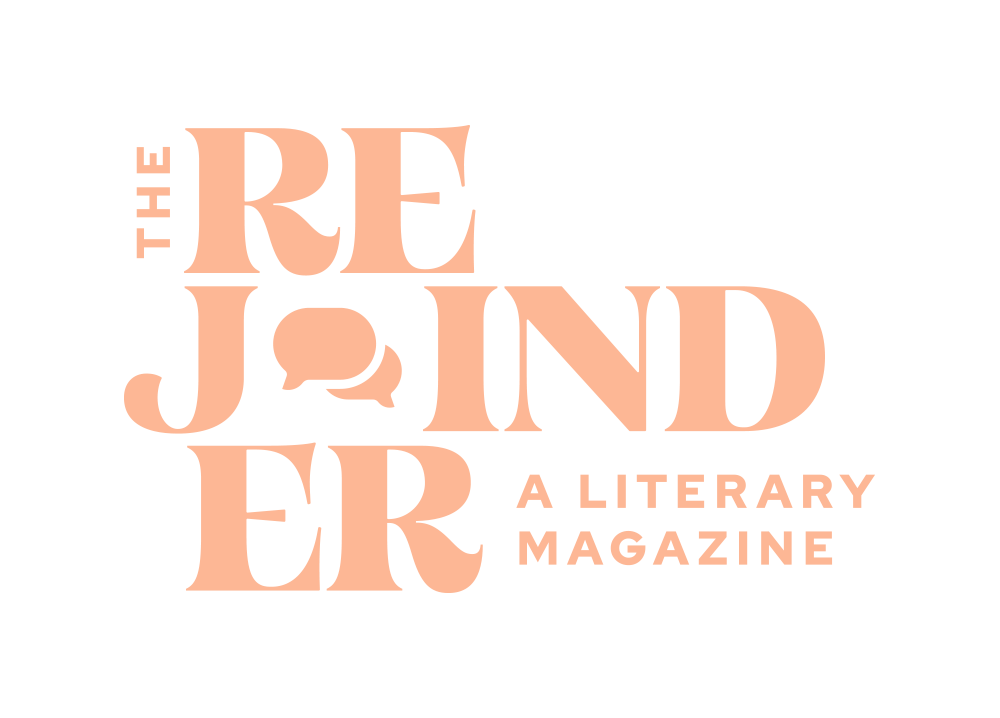5 Questions with Lena Valencia
Today, we published the final installment of Lena Valencia’s story, “The Reclamation.” Marissa Castrigno spoke with Lena about self-help and empowerment, horror, and her debut collection, Mystery Lights.
The Rejoinder: Throughout the story it's almost as if the wellness industry becomes a character in itself. How did you first become interested in portraying characters who are navigating the emotional minefield that is New Age women's empowerment?
Lena Valencia: This story started off as a portrait of an intentional community of women in a harsh desert landscape. At some point during the drafting, I was listening to a podcast with a guest who was a famous self-help author. I was so annoyed by her platitudes I had to turn off the podcast. But then, of course, my writer brain kicked on, and I thought: this is making me angry; how can I use this in my writing? So I went on a bit of a deep-dive into the world of self-help and wellness influencers.
During my research I started to think: what if someone took all of this advice the wrong way? What would be the absolute worst thing that could happen?
TR: It's explicit that both Pat and Celeste are significantly older than the other participants at the retreat. What did that indicate to you about their role in the group—how did you want their age to impact their perspective of their experience?
LV: Pat goes into the retreat with some uncertainty and hesitation about Brooke Lumin and her messaging. She’s the kind of person who likes to feel like she fits in, and the age difference only adds to her anxiety, making her feel alienated and out of place. I also imagine that a part of her longs to be younger again—she works adjacent to the fashion industry, which is kinder to women who fit into a certain category of age and body type. Celeste, on the other hand, is pretty comfortable in her own skin, so I don’t know that her age difference plays all that big of a role in her experience, except when she uses it to try to bond with Pat.
TR: The tension that builds over the course of this story is really thrilling (and in my unbiased opinion that sense of anticipation and escalation is totally perfect for serialization). When you thought about the laddering up of conflict points, what was most important to you about the characters' emotional development?
LV: Thank you for saying that! The idea of breaking the story into days where things become progressively more dire and out of sorts was inspired by the horror genre, where you’re introduced to a character with firm footing in a world and then slowly everything about that world becomes unstable and inverted.
In some ways, though, this is horror story from a monster’s POV. I knew from pretty early on that I wanted Pat to go in to the retreat uncertain and come out “converted,” and for Celeste’s arc to be the complete opposite of this experience—she goes in as a “Brookie” and slowly discovers that the whole thing is a total scam.
TR: You mentioned that this story is part of your collection. Can you say a little bit about how it fits into that whole? Are there common themes, characters, investigations that reappear?
LV: “The Reclamation” is part of my collection Mystery Lights, which features stories about women in the desert confronting obstacles both supernatural and existential. This is one of the more violent stories of the bunch, but many of the others feature some sort of violence, sometimes overt and sometimes more subtle. The Georgia O’Keeffe quote that Brooke mentions— “the desert knows no kindness with all its beauty” (O’Keeffe was talking about her proclivity for collecting bones on walks around her desert home in New Mexico, which she would then feature in her paintings)—served as a guide for much of the collection.
TR: Whose work have you read recently that made you feel excited about fiction?
LV: I loved Kim Fu’s short story collection Lesser Known Monsters of the 21st Century for many reasons, but I especially admired her ability to create strange, wonderful worlds in a relatively short page count. I also enjoyed Idra Novey’s latest novel, Take What You Need. She writes so brilliantly about visual art and artmaking. And I recently listened to the audiobook of Ira Levin’s Rosemary’s Baby read by Mia Farrow, which is one of the most terrifying portrayals of gaslighting in a marriage I’ve encountered in fiction (and the fact that it is read by Farrow, a victim of marital gaslighting in the extreme, makes it all the more poignant). It also captures New Yorkers’ timeless obsession with finding the perfect apartment at any cost.

